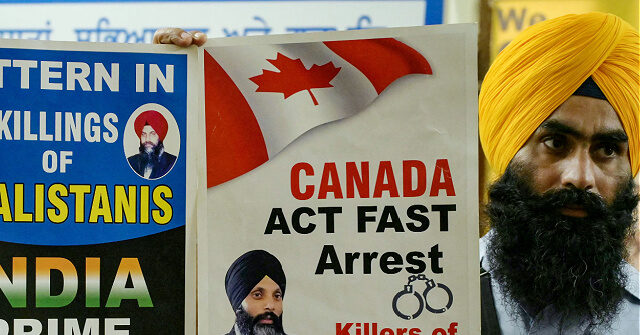Relations between Canada and India have drastically deteriorated in recent months, culminating in a “tit-for-tat” expulsion of six diplomats from each country. This diplomatic rift centers on the assassination of Hardeep Singh Nijjar, a prominent Sikh separatist leader, who was shot dead in June 2023 outside a Sikh temple in British Columbia. Nijjar, who had emigrated from India in 1997 and gained Canadian citizenship in 2015, became a figure of controversy due to his advocacy for the Khalistan movement, which seeks an independent Sikh state in India. Following Trudeau’s bold public accusation against the Indian government in September 2023, asserting their involvement in Nijjar’s assassination, diplomatic tensions escalated, resulting in both countries expelling senior diplomats.
The Royal Canadian Mounted Police (RCMP) recently identified six Indian diplomats as being linked not only to Nijjar’s murder but also to broader illegal activities, including acts of espionage. RCMP Commissioner Mike Duheme stated that investigations unveiled how Indian officials exploited their diplomatic status to conduct covert operations in Canada. Allegations involved coercive tactics to collect intelligence on members of the South Asian community to support the Indian government’s objectives abroad. This type of clandestine activity, according to Duheme, constitutes a significant violation of diplomatic norms and raises severe concerns about India’s encroachment into Canadian sovereignty. Canada requested that India lift the diplomatic immunity for the implicated officials, but after India’s refusal, the expulsions were enacted.
India’s response to these allegations has been one of stern denial, labeling Trudeau’s accusations as absurd and politically motivated. The Indian Ministry of External Affairs stated that Canada failed to provide any evidence for its claims, asserting that the Trudeau government is leveraging this situation for domestic political gain. To retaliate, India recalled its highest-ranking diplomat in Canada, Sanjay Kumar Verma, and expelled six Canadian diplomats. Trudeau emphasized Canada’s commitment to its sovereignty and safety, pointing out that acts of a foreign government threatening Canadian citizens are unacceptable. The Indian government responded by cautioning that it reserves the right to take further action against what they term as Canada’s support for extremism and separatism.
This diplomatic feud has sparked broader debates within Canadian politics, with significant implications for the Sikh community and relations between immigrants from different parts of India. Jagmeet Singh, leader of the New Democratic Party and a Sikh himself, highlighted the threats and intimidation faced by the Sikh community in Canada attributable to foreign interference by Indian officials. He urged political leaders to confront these issues rather than ignore them. Meanwhile, the leader of the Conservative Party, Pierre Poilievre, expressed his concern regarding foreign interference from any nation, reinforcing the sentiment that Canadian citizens’ safety must be prioritized. The escalating tension has prompted a call for more transparent discussions regarding these sensitive relations involving opposition parties in India.
The crisis in Canada-India relations has reached unprecedented levels, drawing commentary from experts familiar with international diplomacy. Michael Kugelman from the Wilson Center described the current state as “rock bottom,” with harsh diplomatic rhetoric and vivid accusations marking a departure from historical interactions. Author and India-Canada specialist Ryan Touhey noted how the evolving demographics of the Indian diaspora in Canada may complicate the political implications for Prime Minister Trudeau, who appears to be facing increasing domestic pressure. The longstanding Sikh advocacy for Khalistan has seen its base diversify, with growing support from other Indian communities that may align more closely with the actions of the Modi administration.
In the context of this deteriorating relationship, Canadian law enforcement has reported credible threats to numerous members within Nijjar’s Khalistani movement in Canada, attributing these threats to orchestrated criminal activities by Indian agents. Such developments raise alarm over the extent of India’s efforts to control narratives and suppress separatist sentiments outside its borders. The situation exemplifies a complicated and increasingly adversarial diplomatic engagement that not only affects bilateral ties but also poses challenges for communities straddling both cultural and national identities in the face of escalating geopolitical tensions.

